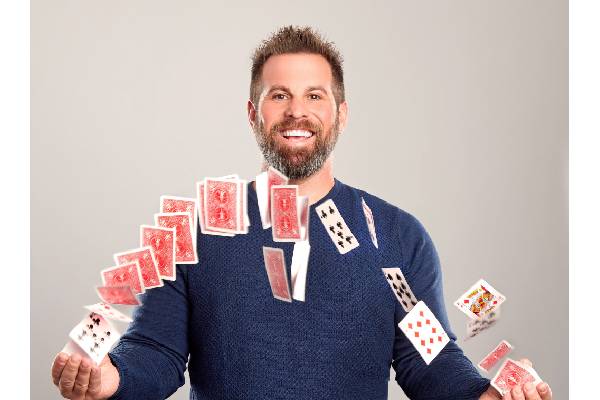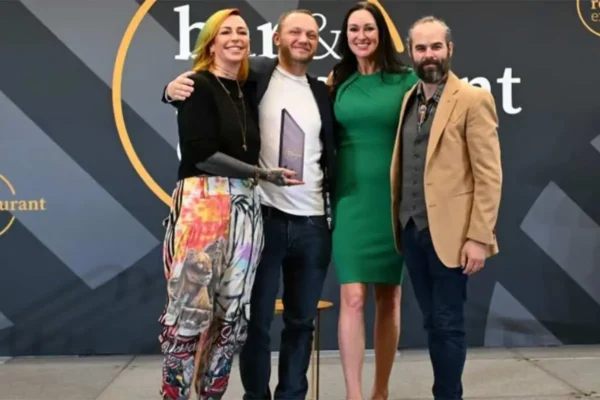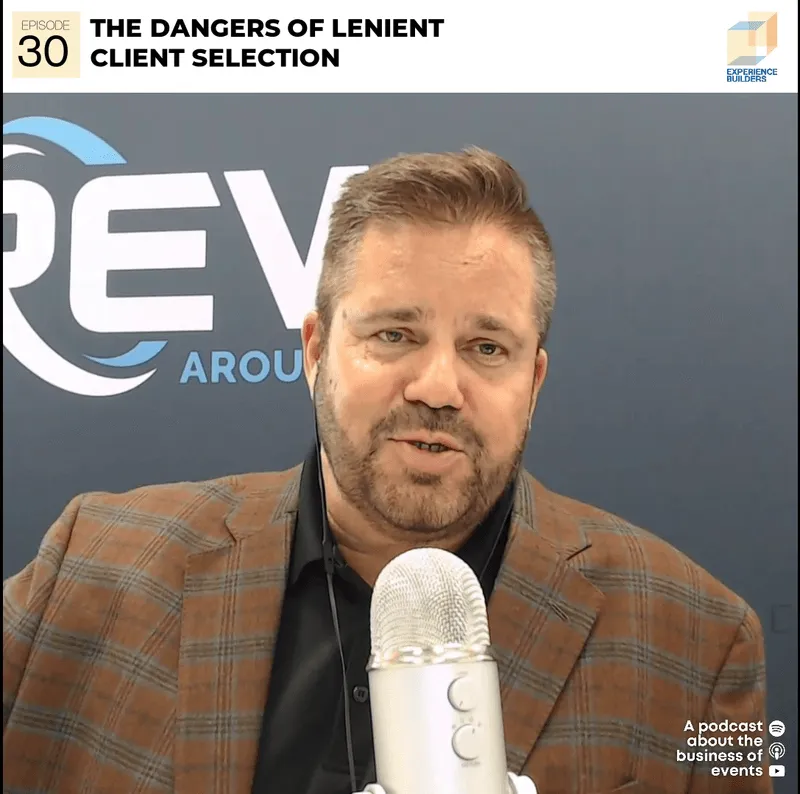by Calanit Atia
Have you ever wondered about the mindset it takes to play in the NFL? After spending a few hours with Jon Dorenbos, Super Bowl champion, I can see why everyone who meets him is captivated by his journey and inspired by his words. He is a true champion.
Jon Dorenbos played 14 seasons in the NFL, notably making the Pro Bowl twice as a member of the Philadelphia Eagles, as well as being the Ed Block Courage Award recipient and the Walter Payton Man of the Year. He also holds the record for the most consecutive games played in Philadelphia Eagles franchise history. He retired from the NFL after he was diagnosed with a life-threatening heart condition requiring 15 hours of emergency open-heart surgery. Jon was the third place finalist on Season 11 of “America’s Got Talent,” where he showcased his skills as a sleight-of-hand magician and also competed on “America’s Got Talent: The Champions.” He is now one of the most sought-out keynote speakers.
ECN recently sat down with Jon Dorenbos to learn more about his life.
ECN: Tell me about your journey to the NFL.
Jon Dorenbos: At 12, I discovered that my father had murdered my mother. He turned himself in the following day. My sister and I went to temporary foster care and went through the most intense therapy for a year, my aunt adopted me, and that is where I got into magic.
I got into magic not to be a magician, but the sound of shuffling cards was the only time the world quieted down, the only time I was just a kid. Time went on; I played University of Texas El Paso, then I made the NFL, where I played for 12 years and NEVER missed a game.
ECN: How was that possible?
Jon Dorenbos: You grant the pain, and you get it done. No excuses. I played 162 games without missing a game. My goal was to be the oldest guy on the team, which meant I had the most opportunities to succeed. The team’s owner wants me around and no one else. That means being a true pro, showing up every day on time, being prepared and ready to work, and doing whatever it takes to get the job done for your teammates, so the people who gave you the opportunity respect you.
ECN: What would you like people to learn from your speaking engagements?
Jon Dorenbos: When I speak, I am able to tell my life story and do the magic that I learned along the way to find happiness. I want people to realize the sooner we can come to terms with our reality the better, whether we agree with it or not. Sometimes we don’t have control over what life gives us. We must make the best of it to come to terms with our reality, so we can find forgiveness and become a teammate that this world would hate to lose; then good things will happen.
When you hold yourself to a higher standard of accountability than anybody else has for you, you surround yourself with good people and you show up on time prepared and ready to work, I truly believe that life is simple. No matter how hard life gets, we decide at that moment: Do we rise and live in vision or stay down and live in circumstances?
I don’t care how much money you have, where you are from, what religion you are or what language you speak. What separates people is how fast they come out of that moment. Is that moment of pain, of struggle, going to define you or refine you? So when you stand up, whatever happens, will you find motivation in defeat? Are you going to shut the voice out that says, “I am not good enough”? Are you going to stand up and say, “I GOT this. This is not going to be an excuse. I realize that life happens, and I am going to come to terms with my reality. I will find the positive in my situation, motivation and ROCK ON. I am going to show up every day prepared and on time and ready to work and live the BEST life I possibly can.” I hope after people hear me speak, they can reflect on their own life and have forgiveness.
ECN: You speak about forgiveness. Have you found it?
Jon Dorenbos: I have not seen my father in 27 years. When my wife got pregnant, I reached out to my dad, and we spoke for 5 ½ hours. It was the hardest thing I have ever done. I was not there for answers, I was not there for validation and I did not need excuses or stories. I wanted to say I forgive you for being lost and making a terrible mistake. For me, it was about redefining what forgiveness means.
While he was in prison, Nelson Mandela told the inmates that we are free men if they don’t hold our souls. When he got released from prison, he was bitter about all the time lost. He might have been free, but mentally he was still in prison. So for me, what forgiveness means, I had taken steps in life. I had a little bit of pain, anger and resentment toward my dad, but he was no longer in my life. Holding on to that was my decision, nobody else’s. For me, forgiving my dad is me symbolically taking one step toward letting it go. Somebody that is no longer in my life will not affect my life.
ECN: What is the mindset that motivated you?
Jon Dorenbos: It is all about the conversations you have with yourself. Don’t listen to yourself; talk to yourself.
Anytime something hard in my life happens, I pretend I am in a romantic comedy movie. I close my eyes and talk to myself about how this will end. I am going to write a movie where I am the lead character, and I imagine the best thing that could happen, and I talk about the story. I write a story that I made up. I look in the mirror and talk to myself. I write the script as if I were in the movie now and know how this movie is going to end. Then you go out of the door, and if 90 percent of your decisions go toward that script, you might not end where you said, but you will be in a much better place than where you were. There is a voice that will want to say excuses, bitterness, anger, resentment, wants and avenges. You need to shut the voice out because that is the voice that is talking to you in your own head. So don’t listen to yourself, talk to yourself.
You may need to tell yourself a thousand times. I talk to myself all the time. If I speak it, I hear it, I see it. Now that you put this energy into the world, it will return to you.
ECN: What did you say to yourself when you were in the hospital for your heart?
Jon Dorenbos: When I was traded to New Orleans going into my 15th season, I received a contract for millions of dollars. I was doing a physical and they found out I have a heart condition. I was rushed to open-heart surgery. After 15 hours of surgery and 35 days for post-surgery, my whole life shifted.
When you come out of surgery with depression, you are really cold and on many meds, so you are very foggy, frustrated and angry. Every morning I would grab my IV pole and shuffle my feet the best I could because I was so weak. It would take me a few minutes to walk 10 feet to the bathroom. I would close the door and look at the mirror, I looked at myself as 40 pounds lighter, with the scar, stitches and staples. I had a few seconds where I cried, then I’d pick myself up as tall as I could, and say, “You got this. Hold your head up high. Walk proud. You got this.” I would say it three times.
ECN: Where did this strength come from?
Jon Dorenbos: From a young age, I wanted the world to see my name and not think of my dad. I wanted my name to mean more than where I came from. I wanted to be so much more than that. So when I say people give me an opportunity, there is a motivation within me that when I was not fast or strong enough, my attitude, my sense of perseverance, my will not give up, to keep standing up no matter what, and to keep walking forward, that is what got me through. I will not stay down. No matter what. If I can stand up, I will stand up. I do not care how bad I am hurting; I don’t care how many shots life has taken at me. I will stand up.
When I had the most consecutive games played, I had a moment in my career. It was early. I got an ankle injury, and the doctor said I would be out for eight weeks, and I was playing in six days, which I did. In the pregame, where you warm up, I knew as soon as I ran out of the tunnel that running was hard with an ankle injury. If I were limping, the other team would see that I was injured. If I am weak, they will attack it, and I am the only one who can do what I do in the team. There is only one snapper per team, so if I go down, it is bad for the team. So I sprinted out of the tunnel full speed, with extreme pain, wanting to cry, but I did not and would not limp.
My favorite moment of my career, I snapped the ball, blocked it and ran 50 yards, made a solo tackle with an injury I was not supposed to be playing on, and at the end of the game, I snapped the ball that gave us the lead, and we won the game.
I had a choice; I could say, “This hurts; I cannot go on.” Or I can say, “I don’t matter; I am going to make a solo tackle, and I am going to snap the winner, and we will win the game.” I will tell you that it hurts, but sometimes life hurts. But you know what? It is going to hurt either way, whether you sit at home and complain about it or achieve greatness. We won that game. That’s all that mattered.
These are the words of a true champion! For booking info, visit JonDorenbos.com.
Calanit Atia is an award-winning event planner and entrepreneur. Air Force Veteran, Founder and President of A to Z Events, Las Vegas DMC and Entertainment Agency, 2021 MPI Advisory Board Member and Speaker. She can be contacted at 702-212-2500, Info@AtoZevents.com, www.AtoZevents.com, www.twitter.com/CalanitAtia www.facebook.com/calanit, www.linkedin.com/in/calanit, www.instagram.com/calanitatia
































